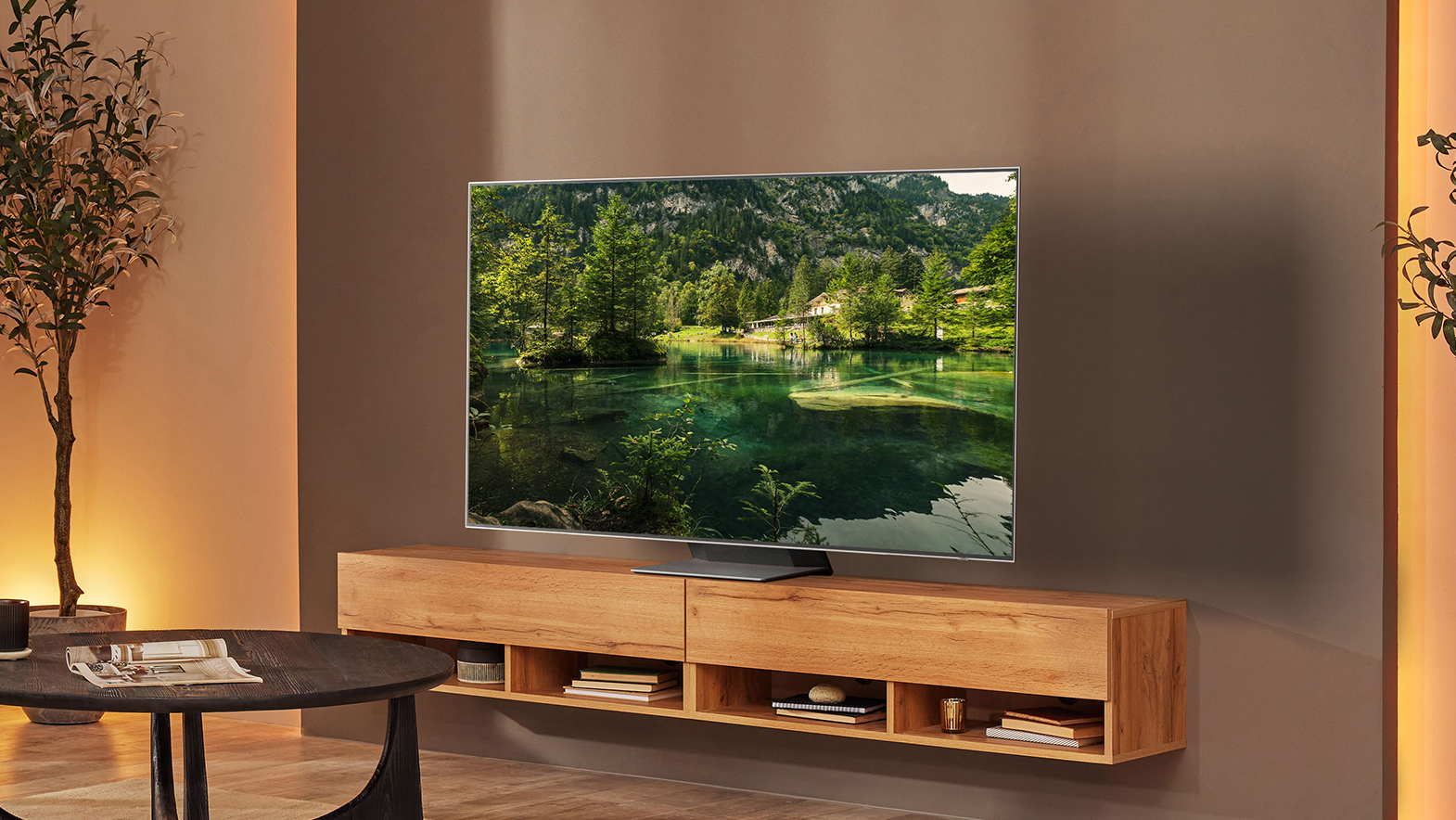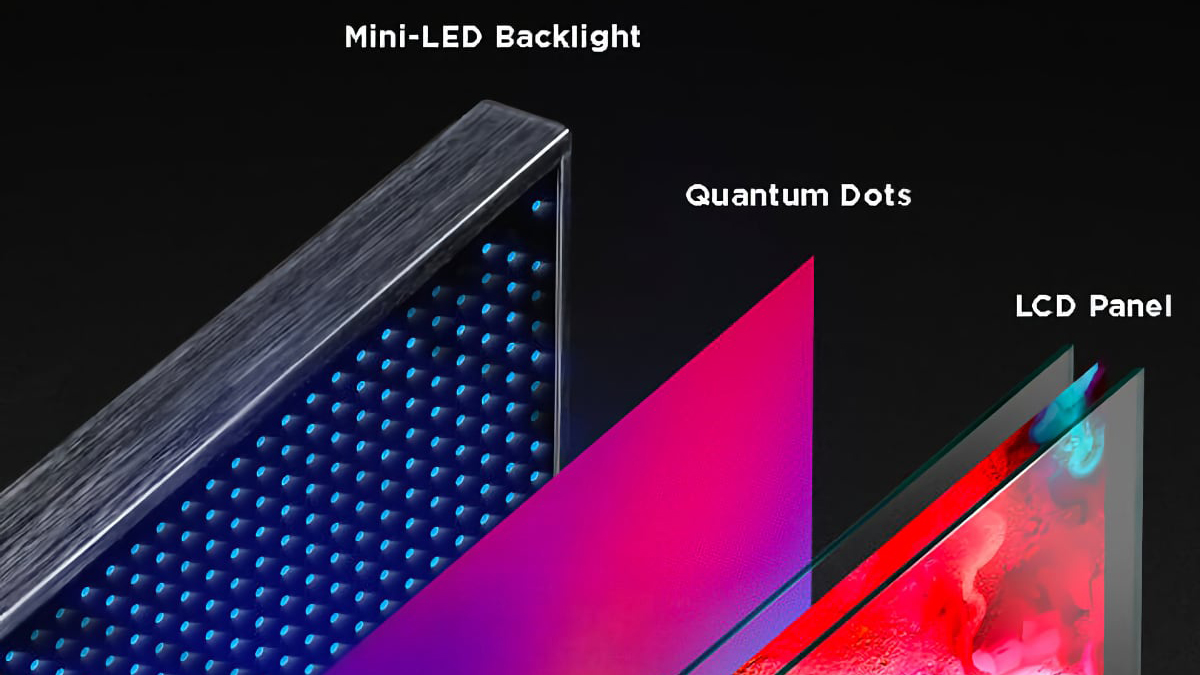Samsung's cheap OLED TVs are canceled for now, as talks with LG break down
Maybe next year

Sign up for breaking news, reviews, opinion, top tech deals, and more.
You are now subscribed
Your newsletter sign-up was successful
If you've been hoping for Samsung to launch a cheaper OLED TV option than the high-end Samsung S95B QD-OLED TV this year, then you should probably bury those hopes once and for all after comments from LG Display's Chief Financial Officer, Kim Sung-hyun.
LG Display is the only company that makes the W-OLED screen tech that's used in almost all of the best OLED TVs – the only alternative to W-OLED is QD-OLED, and that's much more expensive (and is only used in two TVs to date). If Samsung is to make a cheaper OLED TV soon, it will need to use a W-OLED screen, and that means it needs to buy from LG.
However, during LG's most recent earnings call this week, Kim Sung-hyun was quoted by Korea BizWire (via FlatpanelsHD) as saying: "Our new client (Samsung Electronics) had sought to use our OLED panels… While there had been some progress, the process has come to a halt at the moment."
This is the latest story point in an on-going saga over whether Samsung would launch a whole range of cheaper OLED TVs this year, and it already wasn't looking good back in May, because the two companies couldn't agree on a price for the OLED panels. And then a general dip in TV buying (partly because so many people bought a new TV during the pandemic) reportedly made Samsung even less likely to launch its OLED TVs.
But it was still up in the air officially, with little word from either company. This quote from LG saying that talks have stalled tells us that there's really no chance of new Samsung OLEDs arriving in 2022. It's simply too late in the year for a production process to start for a meaningful 2022 launch even if the two companies came to an agreement tomorrow.
New TV models are announced in January, at CES, with the sets actually going on-sale in the spring. We'll wager that, if these OLED TVs are coming, they'll be announced as part of the 2023 line-up.
Analysis: what's going on with the prices?
According a source for Korea Bizwire, LG Display and Samsung still can't agree on a price for the OLED screens, which is what's holding everything up.
Sign up for breaking news, reviews, opinion, top tech deals, and more.
I suspect that's an over-simplified way of phrasing it – there's currently a swirl of factors affecting these price negotiations – but undoubtedly true.
With the falling demand for TVs compared to the last couple of years, LG Display would like to maintain the profit margin of its OLED screens, and as the only supplier, it can do that by holding firm on its prices. Samsung isn't the only manufacturer to be put off by this: we spoke to the President of Hisense USA who told us that the current OLED prices simply don't work for a budget brand – especially because the prices of QLED mini-LED screens are falling rapidly.

This brings up back to Samsung, which put all of its stock in QLED in recent years, and has gone big on mini-LED. Samsung made clear when it launched the S95B QD-OLED TV at a cheaper price than its flagship Samsung QN95B Neo QLED set that it wants its QLED tech to be seen as the most premium TV screen type around.
So I suspect that part of what's driving the disagreement on prices between LG Display and Samsung is that Samsung wants the OLED screens to be cheap enough that it can sell them for less than (or roughly equal to) its entry-level mini-LED TV, the QN85B. But with the price of mini-LED dropping continuously, LG Display would probably have to give Samsung a major discount on OLED screens to make that possible, and it likely doesn't want to do that.
So I think that's likely why there's an impasse: Samsung has its own internal political and marketing reasons for needing W-OLED screens to be cheap, and LG Display has absolutely no desire to undercut its own pricing strategy.
This could all change next year, but there's not much chance of predicting what end result will be – the six months between now and January will be full of more cost-of-living and production changes, and the OLED and mini-LED price war is just beginning.

Matt is TechRadar's Managing Editor for Entertainment, meaning he's in charge of persuading our team of writers and reviewers to watch the latest TV shows and movies on gorgeous TVs and listen to fantastic speakers and headphones. It's a tough task, as you can imagine. Matt has over a decade of experience in tech publishing, and previously ran the TV & audio coverage for our colleagues at T3.com, and before that he edited T3 magazine. During his career, he's also contributed to places as varied as Creative Bloq, PC Gamer, PetsRadar, MacLife, and Edge. TV and movie nerdism is his speciality, and he goes to the cinema three times a week. He's always happy to explain the virtues of Dolby Vision over a drink, but he might need to use props, like he's explaining the offside rule.